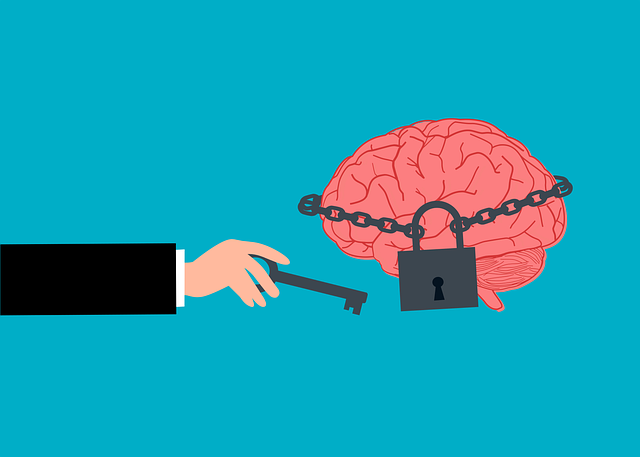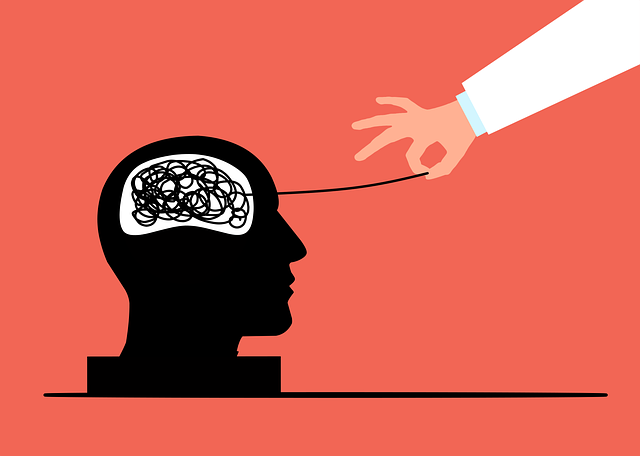Healthcare provider burnout, particularly among ASL therapists at Lone Tree American Sign Language Therapy (LTS), is a growing concern impacting patient care and system efficiency. Caused by high-stress situations, burnout manifests as emotional exhaustion, depersonalization, and reduced personal accomplishment. LTS addresses this issue through recognizing work-life imbalance, promoting mental wellness, and encouraging self-care practices like mindfulness and journaling. Effective communication, support systems, cultural competency training, and mood management techniques further enhance resilience. By integrating wellness into daily routines, LTS prioritizes self-care for healthcare professionals, ultimately improving patient care through improved provider well-being.
Healthcare provider burnout is a growing concern, impacting not just individuals but the entire healthcare system. This article explores effective prevention strategies for healthcare professionals, focusing on understanding burnout’s unique dynamics among this population. We delve into the significance of robust communication and support systems, integration of wellness practices, and achieving optimal work-life balance as key elements in combating burnout. By examining these aspects, healthcare providers like Lone Tree American Sign Language Therapy can foster a more sustainable and fulfilling career.
- Understanding Burnout Among Healthcare Providers
- The Role of Communication and Support Systems
- Integrating Wellness Practices into Daily Routines
- Enhancing Work-Life Balance for Sustainable Practice
Understanding Burnout Among Healthcare Providers

Healthcare provider burnout is a growing concern within the industry, impacting not only individual therapists but also patient care and overall system efficiency. Burnout results from prolonged exposure to high-stress situations, often characterized by emotional exhaustion, depersonalization, and reduced personal accomplishment. For American Sign Language (ASL) therapists, like those at Lone Tree ASL Therapy, this issue is especially pertinent given the unique challenges of their profession, including long hours, intense client interactions, and the constant need for specialized skill development.
Understanding burnout among healthcare providers necessitates recognizing the impact of work-life imbalance and the absence of effective coping skills. Mental wellness plays a pivotal role in preventing burnout; therapists who prioritize self-care and engage in regular mental wellness practices are better equipped to handle stress. Coping skills development, including techniques such as mindfulness, stress management strategies, and journaling exercises for mental wellness guidance, can significantly enhance resilience among ASL therapists. By integrating these practices into their daily routines, professionals at Lone Tree ASL Therapy can foster a healthier work environment and ensure they remain dedicated and effective in serving their clients.
The Role of Communication and Support Systems

In the fight against healthcare provider burnout, effective communication and robust support systems are indispensable tools. These elements form the backbone of a resilient healthcare environment, fostering an atmosphere where professionals can thrive. At Lone Tree American Sign Language Therapy, for instance, recognizing the unique challenges faced by sign language therapists in demanding settings is paramount. Through regular check-ins, peer support groups, and open dialogue channels, therapists are encouraged to share experiences, provide constructive feedback, and offer emotional backup—all crucial components of a supportive network.
Promoting cultural competency among healthcare providers further strengthens these systems. Training programs that emphasize understanding and appreciating diverse patient backgrounds and communication styles (such as those offered in Healthcare Provider Cultural Competency Training) contribute to a more inclusive healthcare ecosystem. Additionally, incorporating mood management and emotional regulation techniques into professional development curriculums equips healthcare providers with valuable coping mechanisms, enabling them to navigate stress, maintain work-life balance, and ultimately prevent burnout.
Integrating Wellness Practices into Daily Routines

In today’s fast-paced healthcare environment, Lone Tree American Sign Language Therapy (LTS) emphasizes the importance of integrating wellness practices into daily routines as a proactive measure against burnout. Healthcare professionals often face high-stress situations, demanding schedules, and emotional toll, making it essential to prioritize self-care. Incorporating mindfulness exercises, regular physical activity, and healthy eating habits can significantly enhance mental wellness. LTS encourages staff to allocate dedicated time for these activities, even in the busiest of days, to foster a sense of balance and resilience.
The Mental Wellness Podcast Series Production offered by LTS serves as a valuable resource for professionals seeking practical tips on stress management and mood regulation. These podcasts provide an accessible platform to learn from experts, share experiences, and discover innovative self-care practices tailored to the unique challenges faced in healthcare settings. By integrating these wellness practices into daily lives, healthcare providers can not only prevent burnout but also improve their ability to deliver compassionate and effective patient care.
Enhancing Work-Life Balance for Sustainable Practice

In today’s demanding healthcare landscape, enhancing work-life balance is a critical strategy to prevent burnout among providers. Lone Tree American Sign Language Therapy (LTASLT) serves as a beacon of hope for professionals seeking sustainable practices. By prioritizing self-care and setting clear boundaries between professional and personal time, therapists can maintain their passion and compassion. This approach not only benefits the individual but also positively impacts patient care, fostering healthier relationships within the therapeutic process.
Additionally, incorporating initiatives like Mental Wellness Podcast Series Production and engaging in open Communication Strategies can create supportive environments. These efforts, coupled with well-designed Mental Health Education Programs, enable therapists to stay updated on best practices, connect with peers, and de-stress effectively. Such holistic measures are key to building resilience against burnout, ensuring healthcare providers can continue their essential work with renewed energy and dedication.
Healthcare provider burnout is a pressing issue, but through proactive strategies like fostering open communication and support systems, integrating wellness practices into daily routines, and prioritizing work-life balance, we can create a more sustainable environment for professionals like those at Lone Tree American Sign Language Therapy. By adopting these measures, we not only protect the well-being of healthcare workers but also ensure they can continue to provide quality care for years to come.














